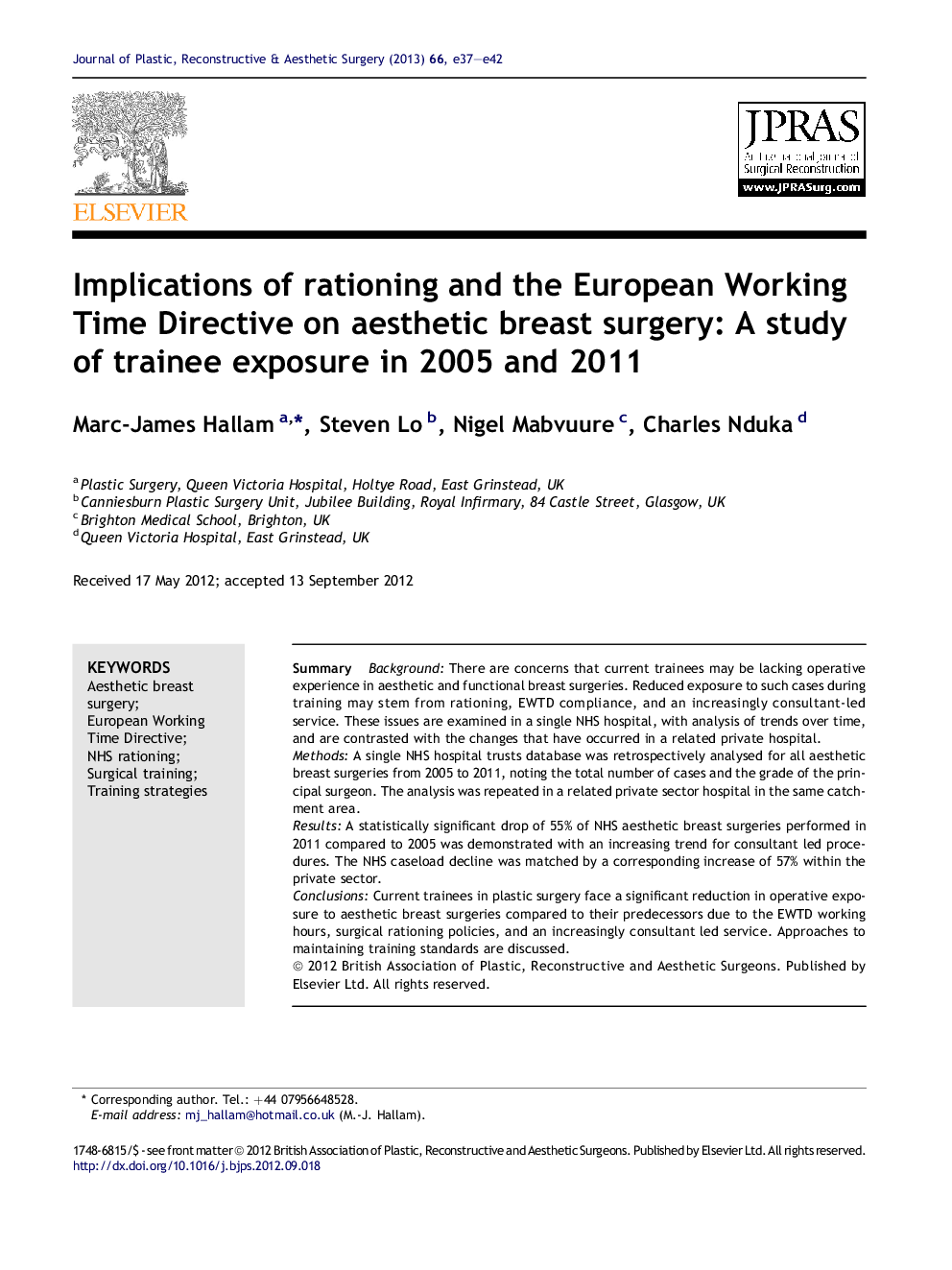| Article ID | Journal | Published Year | Pages | File Type |
|---|---|---|---|---|
| 4118770 | Journal of Plastic, Reconstructive & Aesthetic Surgery | 2013 | 6 Pages |
SummaryBackgroundThere are concerns that current trainees may be lacking operative experience in aesthetic and functional breast surgeries. Reduced exposure to such cases during training may stem from rationing, EWTD compliance, and an increasingly consultant-led service. These issues are examined in a single NHS hospital, with analysis of trends over time, and are contrasted with the changes that have occurred in a related private hospital.MethodsA single NHS hospital trusts database was retrospectively analysed for all aesthetic breast surgeries from 2005 to 2011, noting the total number of cases and the grade of the principal surgeon. The analysis was repeated in a related private sector hospital in the same catchment area.ResultsA statistically significant drop of 55% of NHS aesthetic breast surgeries performed in 2011 compared to 2005 was demonstrated with an increasing trend for consultant led procedures. The NHS caseload decline was matched by a corresponding increase of 57% within the private sector.ConclusionsCurrent trainees in plastic surgery face a significant reduction in operative exposure to aesthetic breast surgeries compared to their predecessors due to the EWTD working hours, surgical rationing policies, and an increasingly consultant led service. Approaches to maintaining training standards are discussed.
